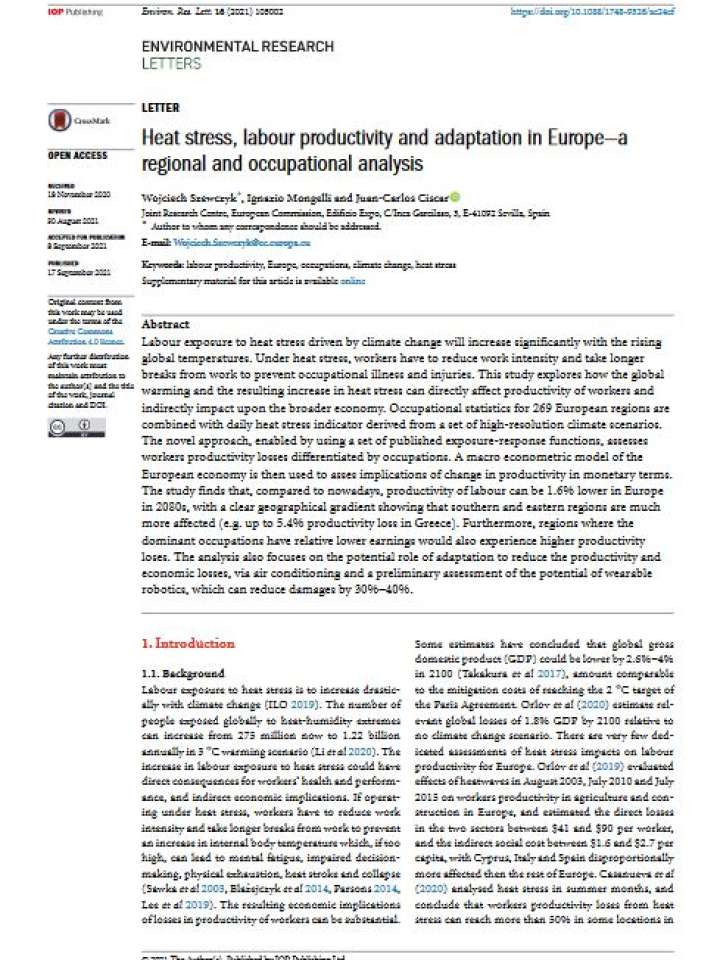Heat stress, labour productivity and adaptation in Europe—a regional and occupational analysis
This study explores how the global warming and the resulting increase in heat stress can directly affect productivity of workers and indirectly impact upon the broader economy. Occupational statistics for 269 European regions are combined with daily heat stress indicator derived from a set of high-resolution climate scenarios. The novel approach, enabled by using a set of published exposure-response functions, assesses workers productivity losses differentiated by occupations. A macro econometric model of the European economy is then used to asses implications of change in productivity in monetary terms.
The study finds that, compared to nowadays, productivity of labour can be 1.6% lower in Europe in 2080s, with a clear geographical gradient showing that southern and eastern regions are much more affected (e.g. up to 5.4% productivity loss in Greece). Furthermore, regions where the dominant occupations have relative lower earnings would also experience higher productivity loses. The analysis also focuses on the potential role of adaptation to reduce the productivity and economic losses, via air conditioning and a preliminary assessment of the potential of wearable robotics, which can reduce damages by 30%–40%.
Explore further
